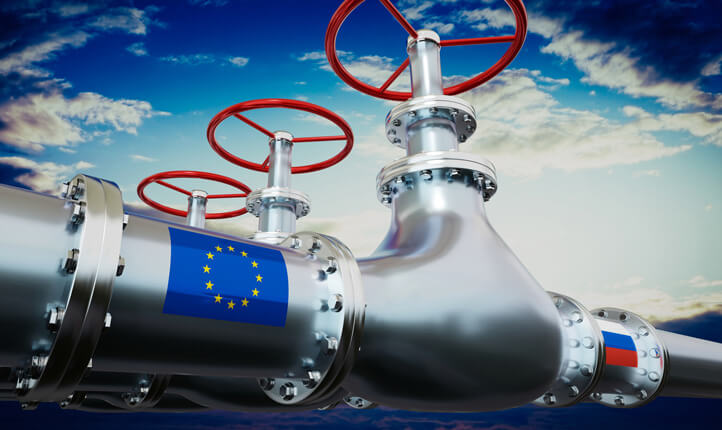By Lauren Buckner
The euro dipped in value yesterday afternoon as the EU announced that they had come to an agreement for member states to voluntarily reduce their gas use by 15% between August and March. Pulling back towards parity with the US Dollar, the euro fell to its lowest level against the Pound since early May.
As Russian company Gazprom announced further maintenance on the Nord Stream 1 gas line running directly to Germany, and a further slow down in supply, the EU have been forced to recognise that gas supply is being used as a political weapon by Vladimir Putin. Having now successfully agreed to reduce the blocs consumption over coming months, the economic capacity of the EU is likely to be impaired which has driven the euro’s slump. With GBP at an unexpected 12 week high versus the euro this could offer a good opportunity for our clients who purchase euros to transfer their funds.
Falling on the back of a boost from the European Central Banks hike to interest rates last week the single currency had appeared buoyant as ECB President Christine Lagarde noted that there appeared to be no risk of a recession in the EU over the next two years.
Market focus now moves to the Federal Reserve’s interest rate announcement this evening. Having raised interest rates by 150 basis points since March the FED are expected to continue their aggressive policy of financial tightening with a 75 basis point rise, although some commentators are suggesting that we could see as high as a 100 point hike,
As inflation continues to increase in the States just as it does at home, the Federal Reserve need to balance their monetary policy carefully so as not to cap economic growth. With inflation currently sitting at 9.1% an uptick in interest rates is the traditional tool to tame inflation but does risk tapering economic activity.
The USD has undoubtedly been the benefactor of global uncertainty but the US economy also runs the risk of tipping in to recession as inflation rises and wage growth lags behind. Interestingly recent initial jobless claims figures were released higher than expected for the States, is this the first sign of dreaded stagflation?
As the cost of living crisis continues to ripple around the world with Putin’s war with Ukraine (the worlds largest grain producer) and control of vast oil and gas supplies continues to impact us all, volatility will be the main winner in fx markets, More so than ever, it is impossible to predict what will happen with exchange rates in the future and limiting the risks that you take with your currency exchange strategy should be considered.



